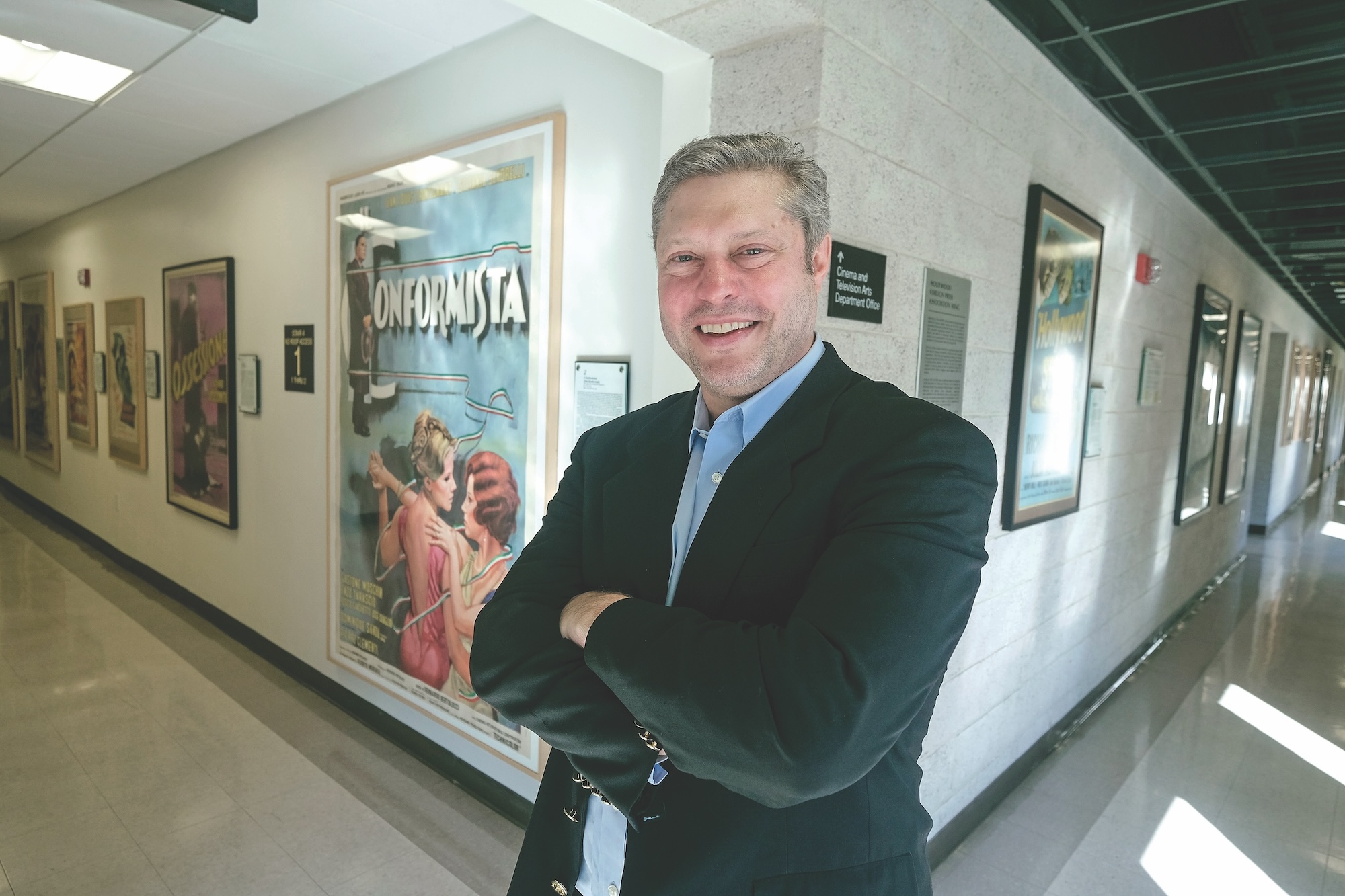Celluloid Chaos – Los Angeles Business Journal

The disruption caused by the Hollywood strikes to the Los Angeles County economy, according to industry experts, is estimated to be about $6 billion.
But what of the production pipeline? When might filming resume after the last strike is settled?
Jonathan Handel, an entertainment attorney and frequent commentator on Hollywood labor strife, said that until there is a Screen Actors Guild-American Federation of Television and Radio Artists deal there really won’t be any movement at all in terms of production.
“If … they do reach a deal in the next several weeks you are still looking at a situation where it is unlikely there would be significant amounts of production until the first quarter of next year,” said Handel, senior counsel at Beverly Hills law firm Feig Finkel LLP.
Even with a new contract ratified by the Writers Guild of America earlier this month the actors union, SAG-AFTRA, remained on the picket lines last week outside the studios represented by the Alliance of Motion Picture and Television Producers, including Paramount and Netflix Inc. in Hollywood and Warner Bros. and The Walt Disney Co. in Burbank.
In the meantime, the studios and production companies are relying on more reality and game shows, sports and music programming to fill in the production pipeline, industry experts said.
Paul Dergarabedian, senior media analyst with Comscore Inc. in Sherman Oaks, said that library titles – older movies and TV series – that can be watched over and over are important as well.
“To fill the void for now, it is about all that ‘other content’ that doesn’t necessarily rely on traditional writing and traditional acting to get them audiences, big and small,” Dergarabedian said.
“We are seeing more reality programming because it doesn’t require SAG actors. It is ‘Dancing with the Stars’ type stuff,” added Marty Shindler, an entertainment industry consultant.
Indeed, in an article from January 2008 in Forbes titled “The Hollywood Strike’s Winners,” the fourth winner listed was “Reality TV.” This was written during the last Writers Guild strike from early November 2007 to early February 2008 and shows that relying on reality programs during a strike has been done before.
“Without scripted competition to fill network schedules, the nets have loaded up on the ridiculous ‘reality,’” the article said.
Content still king
But the grease that keeps the entertainment industry machine running is, of course, new content – the brand-new movies and new seasons of series that people want and are expecting, Dergarabedian said.
“The whole business is built upon having filmed content,” Dergarabedian said. “We’ve seen last year that we had 41 fewer wide releases than we did in 2019, but that was more due to long-term effects of the pandemic on production.”
The total domestic box office is expected to be about $9.5 billion this year versus $7.5 billion last year, he said.
“That’s good news, but still short of $11 billion (in 2019), which is the traditional benchmark in the pre-pandemic era, but there are fewer theaters than there were and if it means $9 billion or $10 billion domestic box office is the norm going forward that is not necessarily a bad thing if it is a leaner, meaner, more efficient business,” he added.
Dergarabedian said that those in front of and behind the camera are all being affected by the strikes.
He said he felt confident about an end to the strikes when the writers’ dispute was settled last month.
“But with SAG-AFTRA negotiations breaking down it just throws another huge speed bump in the road,” Dergarabedian noted.
“Everything is part of that ecosystem and so they are all dependent on each other and they are all affected by each other, and it affects the companies and the producers as well,” Dergarabedian continued. “It’s a tough one for sure.”
Juggling needed
Todd Holmes, an associate professor of entertainment media management at California State University – Northridge, said that he was hopeful after the WGA reached a new contract with the alliance.
“In theory, production can start quickly once the actors get back and a SAG deal is worked out,” Holmes said.
But practically, it will take a bit of juggling of resources.
According to the people Holmes has spoken to and the things he has read, he thinks that if a deal isn’t worked out by now it is not likely a lot of production will be getting done, because “when you start getting into Thanksgiving and the holiday season after that there is a limited amount that they can get done,” Holmes said.
If a new actors’ contract is settled on in the next couple of weeks, there could be some limited production done between then and the end of the year. But most won’t ramp up until January, Holmes said.
“Just given having to get everything lined up, all the preproduction that needs to take place, all those tasks,” he added. “They are trying to shore up all the resources – the crew, the talent, the equipment, the studio space, and all of that.”
Shindler, the consultant, said that early in his career he worked for studios including 20th Century Fox and MGM/United Artists and learned that the heads of production planned for disruptions such as a strike if one seemed imminent.
They built up their pipeline in terms of making sure they had product on the shelves and/or completed or waiting for visual effects and other postproduction, Shindler said.
“In other words, get the movie shot, get it in the can, and then (get it to the) editors and visual effects and audio for post,” he added.
In the current situation, the heads of production at the studios knew the Writers Guild contract was up, Shindler said.
“They know what movie and television shows need to be shot and are ready for production,” he continued. “They know what the budgets are and where they will shoot.”
CSUN’s Holmes said a fallout of the strikes will be a downturn in the number of productions filmed, particularly for the streamers, as the studios try to make their streaming operations profitable.
Hopefully there will be more transparency from the streamers because they have access to more data than is shared with the public, which is the number of minutes a show has been streamed, he said.
Remaining hopeful
“I am hopeful there will be a push for more transparency there so that it can be more easily determined how well a show is really performing,” Holmes said. “Of course, that affects the residuals. And that has been a big part of the strikes to begin with.”
There is talk that if the new pay scale and compensation package is too onerous for the studios they aren’t going to make as many movies or TV shows, Shindler said.
“It is hard to say whether that’s just postering or hyperbole or not,” Shindler said.
But, he added, at some point someone – either SAG-AFTRA or the alliance – is going to have to give in.
“We don’t know when that is going to be yet and who is going to give first,” Shindler said.
“If someone told you (in October) 2022 that there will be a strike next year that will start in May and if someone told you it would continue through October and possibly into November you would have laughed at them and said, ‘Oh probably not; that is not going to happen,’” he added.
+++++++++
John Prabhu and Anthony Syracuse are business partners in a venture called LA North Studios.
The company owns and operates 14 soundstages with a workforce of nine employees in Santa Clarita.
Prabhu is the real estate expert, while Syracuse uses his expertise from the entertainment industry, where he builds sets.
To Syracuse and Prabhu, the business they are in – converting warehouse space into production space – is a lot more than just the four walls they are building and filling with feature films and television shows.
“We want to do what we can to keep filming in Southern California,” Syracuse said in an interview with the Business Journal. “That’s really what LA North is about.”
It was Syracuse who saw the need for more production space in the Los Angeles area as more and more productions began to relocate out of state … along with jobs.
The pair have looked at opportunities in other places, yet they keep coming back to Santa Clarita, Syracuse said.
“There is a lot of opportunity in other states to do what we are doing, and we come back around to that keeping jobs in Southern California is what we really want to do,” he added in the interview.
Tell us how the strikes have affected your business.
Obviously, the strike considerably affected our business both directly and indirectly. We’ve had large film productions cancel last-minute and projects that were scheduled to start postpone indefinitely. We’ve had productions move in only to have to move out days later. The strikes have also affected our vendors and the local commerce in general. Most businesses we work with have felt the sting from the lack of productions. There are so many people struggling right now and anxious to get back to work.
What do you expect to be different in the entertainment industry after the strikes?
We won’t know until it’s been resolved. We just have to remain focused on getting people back to work as soon as possible after the strike ends. We want to keep people working locally as much as possible.
Before the strikes, generally speaking, would you characterize the entertainment industry in Los Angeles as growing or shrinking?
The industry in Los Angeles should continue to grow. We believe Southern California has the finest soundstages, crews, vendors, locations and overall talent in the world. We want to do our part to continue to make it convenient, lucrative and fun to make films here. Santa Clarita has seen an influx of film productions over the past several years. Some notable films that were made in our soundstages include “Space Jam,” “Air,” “The Little Things,” “King Richard,” “The Fablemans,” etc. We hope to get back to this soon.
Longer term, how do you expect the entertainment industry in Los Angeles will change? Will some areas grow while others shrink?
As a whole we think our industry will continue to grow. We repeatedly hear how much easier and streamlined it is to film here as opposed to other states and countries. We are hopeful that this continues long term.
Do you have any plans to expand, and what areas (if any) outside of Los Angeles are you doing business in now and why?
We do have significant plans for expansion in our current market. Our business model has always been based on our goal to create jobs in Southern California while providing an economical solution for projects filming here. Santa Clarita allows us to do both. The demand for skilled professionals, and flexible sound stages combined with the local film collective, and our talented and supportive community, are all reasons why we’ll expand in the Santa Clarita Valley.
+++++++++

At Lennie Marvin’s Prop Heaven in Burbank, Keith Marvin, the chief executive of the business started by his parents, has kept busy despite the strikes by Hollywood writers and actors.
He has used the free time to improve the business and the shopping experience for his customers once they start coming back.
Prop Heaven houses over 1 million items in a 90,000-square-foot warehouse and a 3 ½-acre outdoor display space, which features tables, chairs, electric and neon signs, laundromat washing machines, playground equipment, traffic signs and clocks.
The business was founded in 1977 by Marvin’s parents, Lennie and Ricki Marvin, who occasionally rented out antiques from their home to the film industry.
Lennie was a professional piano player and piano tuner and repair technician, his son said.
“All these activities provided very little income, and my parents turned a hobby into a successful business,” Keith Marvin said.
As for the strike, Marvin said it was “nothing new.”
After all, he remembers 1981, when the writers went on strike over payment from cable and videotapes, then the latest in technology in the entertainment industry. The current strike is also about new technology, specifically streaming services, he said.
“They sorted that out and they will eventually sort this out,” Marvin said in an interview with the Business Journal earlier this year. “I don’t know how. Smarter people will figure that out. In the meantime we are just making do.”
Tell us how the strikes have affected your business.
We used this “free time” to better our business. Major edits, reorganization, improved shelving and displays, all done with the goal of improving the shopping experience for our customers. None of the full-time staff of 25 were laid off or had their hours reduced. Business began slowing down in August 2022, and the downturn increased further beginning in January of this year. Fortunately, commercials, events, music videos/You Tube, reality shows, photo shoots kept going (during the strikes) and talk shows came back after the writers’ strike ended. But overall, business is significantly reduced.
Before the strikes, generally speaking, would you characterize the entertainment industry in Los Angeles as growing or shrinking?
Production has been so volatile since (the start of the Covid pandemic in 2020). 2021 was phenomenal. 2019 was the most recent “normal” year. Perhaps growing, due to streaming shows.
Longer term, how do you expect the entertainment industry in Los Angeles will change?
Just not sure. There are many new sound stages in area, and others in development. Hopefully they will be occupied with productions, moving forward. The California Film Tax Credit is essential.
Do you have any plans to expand and what areas (if any) outside of Los Angeles are you doing business in now and why?
There are no plans for movement to an out-of-town area or location.
+++++++++

Pam Elyea, the vice president of North Hollywood prop house History for Hire, said that she has not had to lay off any more employees since the spring, when she let four staffers go after the start of the writers’ strike in May.
That is thanks to the state’s workshare program meant to help businesses keep employees on the payroll by reducing their hours and allowing them to collect unemployment for the time they don’t work.
“It’s a huge thing in my industry,” Elyea said.
History for Hire was founded in 1986 by Pam Elyea’s husband, Jim Elyea, and his brother, Bob Elyea. It started in a 4,000-square-foot space that eventually grew to the 33,000-square-foot warehouse the business occupies today. The warehouse is filled with contemporary and historically accurate props.
Tell us how the strikes have affected your business.
History for Hire rents props to the entertainment industry. Our biggest clients are the streaming companies and studios. Work for our company started to slow down at the beginning of this year and virtually stopped in May.
What do you expect will likely be different in the entertainment industry after the strikes?
After the Screen Actors Guild-American Federation of Television and Radio Artists strike is settled it will take three to four months for production to fully ramp up. Shows looking to finish their projects that went on hiatus during the strike and new shows looking to start production will compete for the same physical and human resources in town. This level of heightened new activity will be temporary, then there will be a dip down in production that will be the new normal. The outcome of the 2023 strikes will be on everyone’s minds as we look towards the International Alliance of Theatrical Stage Employees 2024 contract talks with studios. Production will either want to finish shooting prior to those talks or wait until the IATSE contract is resolved.
In your opinion, what will be the effect of artificial intelligence on the industry and, in turn, on your business?
In the 1990s, when CGI became a player in our industry, we were told that prop houses would be going out of business. Our inventory would be scanned and would not need to be rented in the future. That didn’t happen. If anything, we were even busier. In 2002 we worked on the film “Simone,” a movie about a director creating a virtual actress to star in his films and his attempt to keep her nonpresence a secret as she becomes more famous. Everyone should watch “Simone” and see how they feel about an AI world.
Before the strikes, generally speaking, would you characterize the entertainment industry in Los Angeles as growing or shrinking?
After the pandemic year (2020) we saw the largest jump in volume of work in years. In 2021 we had all the leftover production from 2020 shut down to finish and all the new projects in 2021. There is more opportunity for work in Los Angeles. Los Angeles is still the entertainment capital of the world, but our city’s borders now touch those of other locations. I don’t see other markets as my competitors. We work together.
Longer term, how do you expect the entertainment industry in Los Angeles will change? Will some areas grow while others shrink, for example?
There will be less production in the long term in Los Angeles and other cities. The studios and crafts need to work on their relationship and decide what kind of a business the entertainment industry is and needs to be in the future to service the common good. We are a service industry, and if we aren’t giving audiences what they want and need we will not be relevant to their future.
Do you have any plans to expand, and what areas (if any) outside of Los Angeles are you doing business in now and why?
History for Hire is just one big happy store in North Hollywood. We’ve looked at moving and/or putting branches in other locations and countries, but L.A. works for us. We’ve shipped props to every continent in the world, including Antarctica. Our prop inventory is online, so shopping is 24/7 from anywhere in the world.




